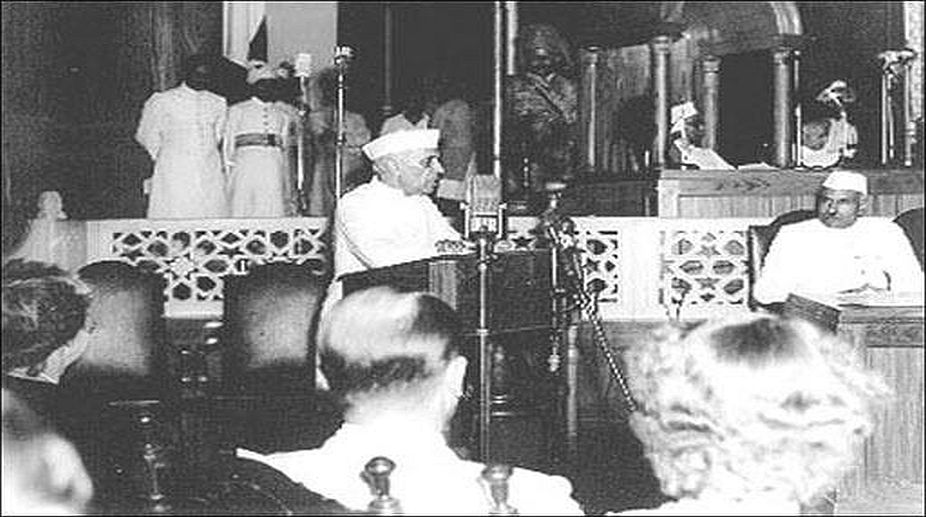Out of the 12 main pages of The Statesman of 25 April, almost two were completely devoted to government advertisements (highlighting inauguration of development project by the chief minister) and one editorial to a recent tragedy which I feel too deeply to write about.
But I do feel a compelling obligation as a conscientious mother and citizen to write this piece and remind ourselves of the strange tryst with destiny that we have either accepted or resigned ourselves to in the absence of anything better – if this isn’t the nadir, what is.
Advertisement
Forget about the big things – the fact that it has become increasingly hard to breathe the polluted air and that we are always enshrined in a condition of “haze” (check the weather here – it is never ‘sunny’, ‘cloudy’ or ‘rainy’ – outside condition is mostly ‘hazy’); the fact that villages together are wiped out to make way for bridges, and the bridges take aeons to get built creating major traffic snarls and along the way make a daily commute as hellish as it could be, and even then there is a possibility that public money has been siphoned away and materials used for constructing the bridge have been tampered with so that it may crumble killing many in a repetition of earlier catastrophe; the fact that come monsoon, the spread of vector-borne diseases will assume proportions scarier than the wrath of Sauron and some hapless people including school children will have to pay the ultimate price of lackadaisical municipal bodies with their lives; any constructive criticism or sane advice by experts will be waived away as presumptuous by the powers that be, and astute voices will be disregarded, and the list can go on…
One is reminded of Aurobindo’s words from Savitri, that we are all in (English translation by Sunit Chattopadhyay) “A net of death in which by chance we live”. But we are not even thinking about these big macro concerns, only basic day-to-day living realities that we are forced to confront like medical needs or just an evening in the park.
Our housing complex has a children’s park, called “tot lot” (with a slide that is broken), a see-saw, and a couple of swings. There are some flower beds on one end and a fountain which runs dry in the middle. Children, usually less than ten years old, play in the park. Not-so-small boys (around fifteen-sixteen years) also use the park to play cricket (sometimes with a hard ball) making the park extremely unsafe for the smaller kids.
One afternoon in the park and one can hear complaints of being hit by the ball sometime or the other from almost all the smaller children. Mothers of younger kids have been repeatedly requesting the older kids, their parents, the housing association, the security in charge, but nothing has changed. Younger kids must pay the price of peril to play in the lot designated for them! Who will be accountable should any mishap happen? Just another news that maybe makes it to the newspaper. Period.
Strange that children elsewhere in the world can play in parks with the highest level of safety and security – the road near the kids’ playing area is cordoned off for regular traffic; traffic halts on either side when a school bus stops for disembarking children; stops even when ice cream carts stop (lest children come out running from the houses to enjoy frozen desserts!). But of course we are here by choice so there’s no pining and our kids are destined to eat poor quality food, breathe poor quality air, and avail poor quality medical facilities. Why is it that things don’t seem to be this bad even elsewhere in India – my own first hand experience as well as others’, pertaining to medical needs have been much better, humane and empathetic in places like Mumbai, Chennai and Vellore.
It’s sometimes heartening to look back at the beginning, to ponder on our course till now and journey ahead. Maybe it’s time to listen to Nehru once again, but this time with a different ear – not as citizens being freed from the shackles of bondage of an alien nation but those who have voluntarily shrouded our minds and souls in totemic politics, vacuous religious debates and mindless mediocrity – it’s time we woke up and realised that terrorists aren’t the real threat to our survival. It is the unseen hazardous pollutants that we and our children are breathing day in and day out that are a real problem, the lack of political will that is keeping the air in such hazardous state is the real problem, the life that is sacrificed at the altar of negligence is the real problem, and the deaf ear that is not hearing the wails of pain, is the problem.
“Long years ago we made a tryst with destiny, and now that time comes when we shall redeem our pledge, not wholly or in full measure, but very substantially. At the stroke of the midnight hour, when the world sleeps, India will awake to life and freedom. A moment comes, which comes but rarely in history, when we step out from the old to new, when an age ends, and when the soul of a nation, long suppressed, finds utterance.”
What we have now is neither the destiny we deserve nor the one that our forefathers gave us, it is our own doing and it is now high time to undo it, to raise our voices and lend utterance to our literally choking voices and spirits.
The writer is with the Indian Statistical Institute.











